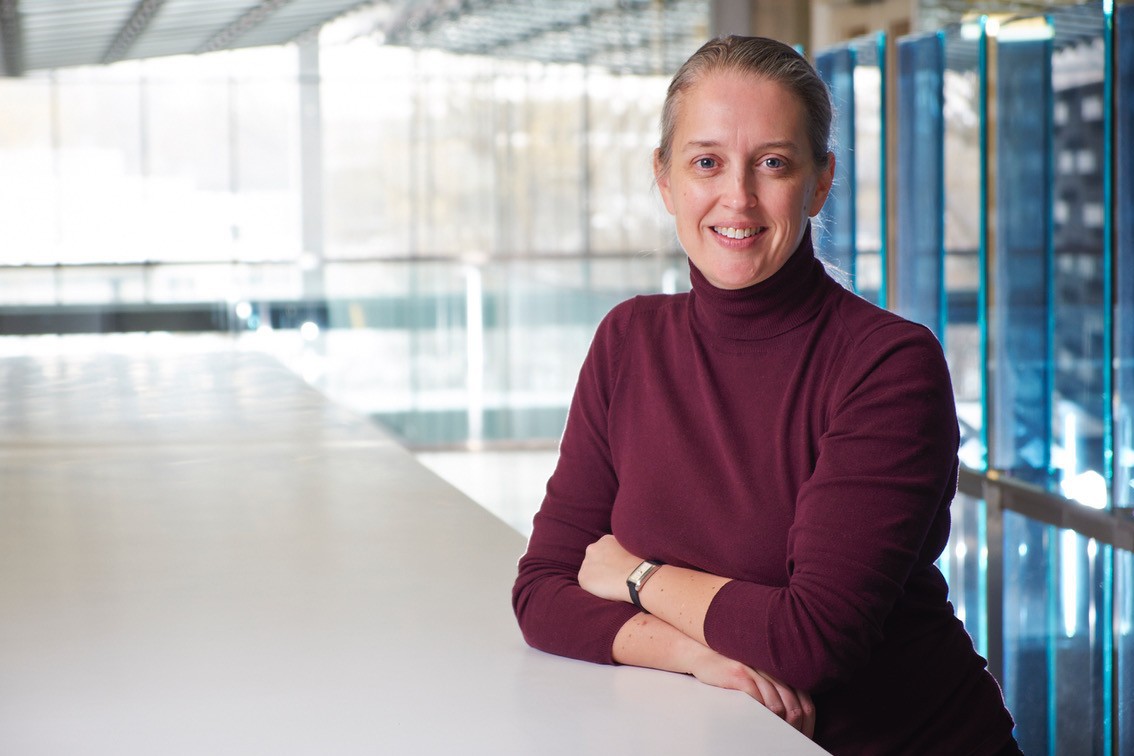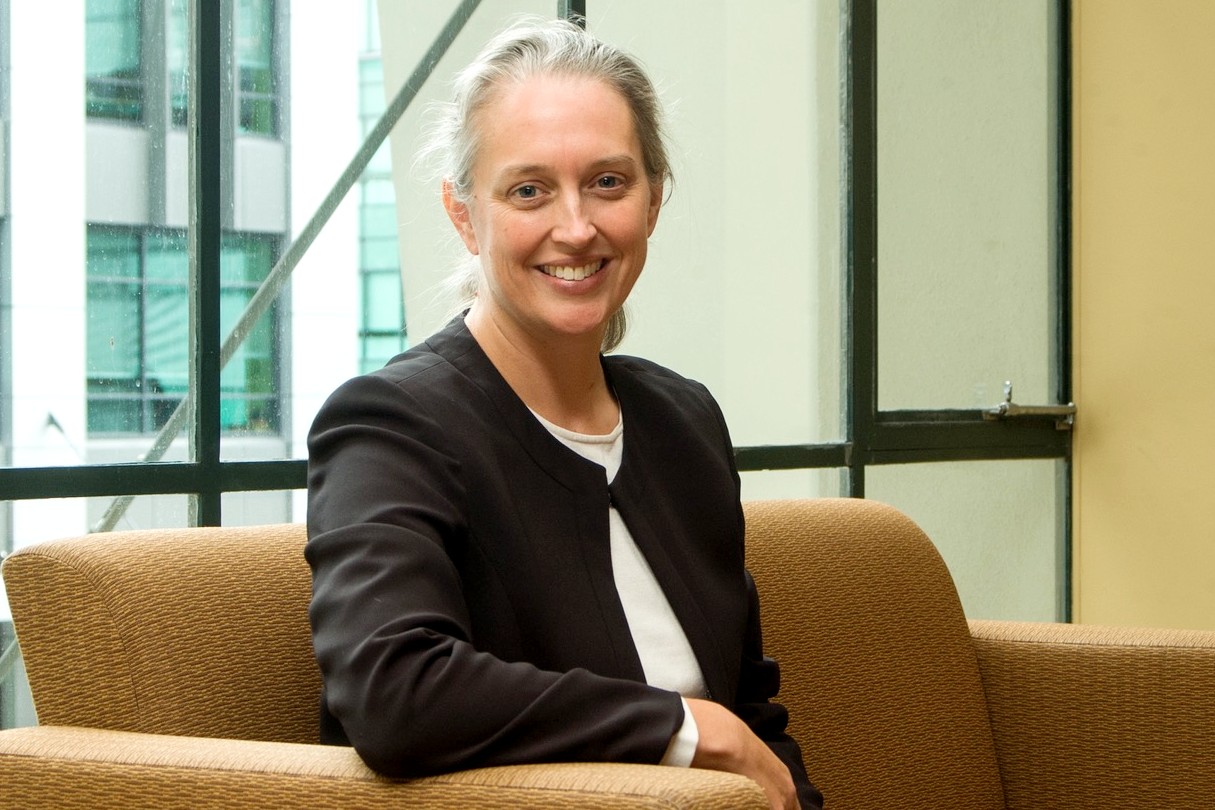A research paper written by Heather Douglas, associate professor of philosophy at Michigan State University, is being recognized as one of the most influential to ever be published by the Philosophy of Science journal and was selected to be included in the journal’s 90th Anniversary Collection.
Only 30 papers from the past 90 years were chosen to be part of this anniversary publication, including a paper by Albert Einstein.
The paper by Douglas, "Inductive Risk and Values in Science," originally was published in the Philosophy of Science journal in December 2000. The paper addresses important themes, including the influence of social and ethical values on scientific judgments, inductive risk and the importance of addressing uncertainty in scientific decision-making, the role of values in the weighing of risks and potential impacts of scientific choices, the ongoing debate regarding the roles of values in science, and the significance of understanding values in science-society relationships.
The role of social and ethical values in scientific judgments, in both the selection of methods and in interpreting results, is a relationship Douglas has been studying since her Ph.D. research, which explored the causes of experts’ disagreements regarding the dangers of dioxin, and revealed the significance of social and ethical values in scientific decision-making.
“Because science is inherently inductive, there is always a concern that one is making an erroneous choice,” Douglas said. “The risk of a wrong choice (in methods, in the interpretation of data) is ‘inductive risk.’ One straightforward example of this is when scientists need to decide whether the risk of a false positive is more important than the risk of a false negative.”
Social and ethical values are essential in addressing this pervasive risk in scientific decision-making, according to Douglas. Scientists must determine whether the consequences of a false positive outweigh those of a false negative. For example, in Douglas’ dioxin research, scientists must determine whether the risk of overregulation, and its potential to impact the economy, is worse than the risk of underregulation, and its potential impact on public health.
“In scientific papers on dioxin that I read and discussed in the dissertation, I was continually seeing scientists describe concern for overregulation or under regulation, and using that concern to justify various judgments and choices made in the course of their scientific work,” Douglas said. “This is values in science and values playing a legitimate role in scientific judgment.”
Douglas’ research has spurred meaningful debates among philosophers of science. Her "Inductive Risk and Values in Science" paper served as a catalyst for discussions on the proper and improper roles of values in scientific practices, promoting a broader understanding of how values intertwine with scientific judgment.
“I am glad that this paper helped to instigate this discussion, along with key work by feminist philosophers of science such as Helen Longino and Alison Wylie,” Douglas said. “It is an important, and ongoing, debate to have, both for the philosophy of science as a field and for the broader society in which science functions. I am particularly happy that many scientists have embraced the points raised by this paper and now better recognize the importance of values for good scientific practice.”
Starting with her Ph.D. studies, Douglas sought to extend the philosophy of science beyond the borders of the academic realm, exploring philosophy in ways relevant to scientists, policymakers, science advisors and the public. Her engagement with these various stakeholders has guided her work as she values feedback from non-philosophers to ensure the practical impact of her research. The inclusion of her paper in the "Philosophy of Science‘s" 90th Anniversary Collection is a testament to her significant strides in this direction.
“I am honored to have the paper included in the collection,” Douglas said. “It suggests to me that the issue of values in science is now an accepted and central aspect of the field of philosophy of science. There remains so much work to be done in this area, so many examples, topics and issues to pursue. I look forward to debate in this area to continue for many years to come.”
Douglas joined MSU’s Department of Philosophy in Fall 2018. Her research focuses on the relationship between science and democracy, including the role of social and ethical values in science, the nature of scientists’ responsibility in and for science, and science-policy interfaces such as science advising, science funding, responsible research oversight/cultivation, and science communication. She is interested in how citizens can and should interact with science, including the bases for citizens’ trust in scientists. She has also worked on the nature of objectivity in science and how to weigh complex, non-convergent sets of evidence.
Douglas is the author of "The Rightful Place of Science: Science, Values, and Democracy" (2021), and "Science, Policy and the Value-Free Ideal" (University of Pittsburgh Press, 2009), dozens of articles and essays, and several edited collections. She is a fellow of the Institute for Science, Society, and Policy at the University of Ottawa and a member of the Socially Engaged Philosophy of Science Group at MSU. In 2016, she was elected as a Fellow of the American Association for the Advancement of Science. She also was a Senior Visiting Fellow at the Center for Philosophy of Science at the University of Pittsburgh during 2021-2022.
The "Philosophy of Science" Journal’s 90th Anniversary Collection comprises a selection of articles spanning nine decades, with each decade represented by three or four articles, with a focus on the most significant contributions published over the years.
This article originally appeared on the College of Arts and Letters website.

